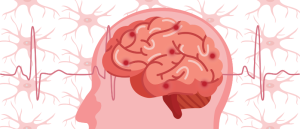ReapTEC: linking rare T-cell subtypes to immune disorders

Researchers have used a new method, ReapTEC, to identify rare types of helper T cells that are associated with immune disorders.
An international collaboration of researchers at the RIKEN Center for Integrative Medical Sciences (Kanagawa, Japan), Kyoto University (Japan) and IFOM ETS (Milan, Italy) have discovered a number of rare helper T cells that are associated with immune disorders, such as multiple sclerosis, asthma and rheumatoid arthritis. To conduct this research, the team developed and employed a new method called ReapTEC, allowing them to create a T-cell atlas that could assist in the development of new therapeutics for immune-mediated diseases.
The immune system is largely made up of a type of white blood cell called a helper T cell. These cells recognize pathogens and are responsible for immune response regulation. Therefore, when dysfunctional, helper T cells play a key role in immune-mediated diseases, mistakenly signaling the immune system to attack the body. Although we know of many common T cells, recent studies have revealed there are specialized T cells, which may be related to immune-mediated diseases.
All cells contain regions of DNA, called enhancers, that code for RNA and enhance the expression of other genes. This means that differences in T-cell enhancer DNA would affect gene expression and cell function. Enhancers can be bidirectional, meaning both strands of DNA are templates for enhancer RNA. To investigate connections between bidirectional enhancers and immune-mediated diseases, the team developed ReapTEC.
ReapTEC (read-level prefiltering and transcribed enhancer call) is a method that can simultaneously profile gene expression and enhancer activity using 5’-end single-cell RNA sequencing data. This method can locate RNA 5’-ends in single cells by leveraging a cap signature derived from the 5’ cap.
 Mobilizing CD4+ T cells and microglia against glioblastoma
Mobilizing CD4+ T cells and microglia against glioblastoma
Researchers discovered that an immunotherapy, called anti-CTLA-4, mobilizes microglia against glioblastoma as it causes CD4+ T cell infiltration of the brain.
Using ReapTEC, the researchers analyzed approximately 1 million human T cells, finding that 5% of all T cells were rare subtypes, of which there were several groups. They identified 62,803 bidirectional enhancers before turning to genome-wide association studies to find out if any of the enhancers identified were linked to immune diseases.
Combining their ReapTEC and genome-wide association study data revealed that many genetic variants for heritable immune diseases were situated in the rare T cells’ bidirectional enhancer DNA. This wasn’t the case for other types of diseases, such as neurological diseases, which showed no genetic variants located within T-cell enhancer DNA. This led researchers to believe that helper T cells’ bidirectional enhancer DNA plays a key role in immune-mediated diseases.
Taking the study one step further, the researchers were able to determine which enhancers in a specific rare T-cell subtype were related to a certain immune disease; overall, they identified 606 enhancers that included genetic variants related to 18 immune-mediated diseases. Not only did they identify enhancers related to immune diseases, in some cases they were also able to identify the gene upregulated by those disease-associated enhancers.
“In the short-term, we have developed a new genomics method that can be used by researchers around the world,” concluded senior author Yasuhiro Murakawa. “Using this method, we discovered new types of helper T cells as well as genes related to immune disorders. We hope that this knowledge will lead to a better understanding of the genetic mechanisms underlying human immune-mediated diseases.”
Looking to the future, follow-up experiments utilizing this work and method will be key for identifying new molecules that could treat immune-mediated diseases.




